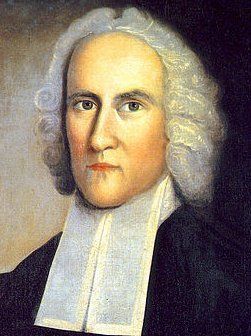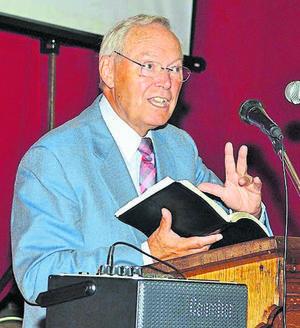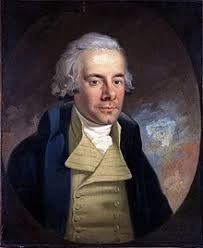
If this question had been asked thirty years ago and had in mind the subject of ‘social responsibility’, evangelicals would answer very largely that our task was simply to ‘preach the gospel’. But the situation has changed radically and large sections of the evangelical world are devoting enormous energy to addressing the evils of society. Is this a good thing? Perhaps the ‘only preach’ approach was an overreaction to the old social gospel? Should we be looking back to the Victorian era when much was done to cope with the evils of society? Or perhaps what we have today is evangelicals giving in to worldly pressures to respond to the world’s agenda in order to claim credibility and appear ‘relevant’? Individually, many of us seem to be lukewarm about calls to be more caring for society, though we don’t quite know why. Others seize opportunities that abound to show that they really do care about what is going on around us. This debate is very practical and our conclusions will determine how we use our limited resources. We hear of a ‘Christian coalition’ in the USA between Christian evangelicals and Catholics. There are others who want to ‘reconstruct’ society along so-called ‘biblical lines’. In the UK similar efforts are made to confront the moral collapse that is happening everywhere. How should we react? Are there scriptural principles? Should we simply pray for revival and evangelize?
Scriptural principles
Clearly the Old Testament abounds in expressions of concern that God has about injustice and moral decline in old Israel, but we need to remember that the people of God were a theocracy. It is not enough just to quote the Old Testament Scriptures in support of a social programme. It is true that Christ ‘went about doing good’ and expressed his great concerns for the needs of men’s bodies, but he was not carrying out a ‘social programme’ to address the evils around and raise the general standard of living. Everything he did was to draw attention to himself. His miracles were, in fact, signs that confirmed his message.

When we come to the period after Pentecost, we see no programme whatever to deal with the enormous social evils of that day, such as slavery. The great concern was to preach the gospel, build up the church and prepare for the Second Coming. This, however, does not exclude a concern for the well-being of those around us. A very important Scripture is Galatians 6:10: ‘As we have opportunity let us do good to all, especially to those who are of the household of faith.’ This does not have the same weight as the gospel commission but it is a clear directive that we should have a concern for the well-being of those round about us. It is obvious that we should heed such a specific Scripture. Another verse that is relevant here is Matthew 5:13-16 where Christians are to be ‘salt and light’, but the important point is that this function is ‘that the world may see your good works and glorify your Father in heaven’. Our good works are not intended to raise society to a Utopia because this world is under condemnation and will soon be destroyed; they should rather be performed as a witness.

God’s plan
We should understand what God’s programme is. Every single thing that he does is part of the wonderful plan of redemption to glorify his dear Son. This is demonstrated in Jonathan Edwards’ famous book The history of redemption. Paul made it clear to the Athenians in Acts 17:26-27 since even the ‘bounds of men’s habitation is pre-appointed that they should seek the Lord’. God has no objective outside this wonderful plan that men may seek and find Christ. We must bear this in mind in everything we do. Even prayer for revival is not to save a country from judgement, but to quicken and enlarge the people of God and to prepare the bride for the return of the Bridegroom. God’s programme is set out clearly in Titus 2:11-14. It includes the need for good works and godly living, but concludes in the appearance of the Lord Jesus with the destruction of the world. We must recognize, therefore, if God has a clear programme, then we too must have just such a programme. Indeed, whatever we do should be to glorify Christ (Colossians 3:17). The Lord Jesus tells us we must love our enemies that ‘we may be sons of our Father in heaven’ — as a witness (Matthew 5:45). We are exhorted to give even a cup of cold water in the name of a disciple (Matthew 10:42). This is not suggesting that we must forever be quoting the name of the Lord Jesus Christ, but to bear in mind that the gospel commission is confirmed and supported by a caring witness.
No compromise
Clearly then, the prime task of social concern for the Christian is to draw attention to Christ and his gospel. We are concerned about men’s bodies because they have never-dying souls that need to be saved. It is essential, therefore, that we do not witness against present evils by joining forces under a Christian banner with those who preach another gospel. Once we do this, we are undermining the very purpose of our activity. A Christian coalition with those who deny the faith, or a protest against abortion using a ‘Christian’ platform with those who are not Christians, is ruining our witness and making it of no effect.

If we look at Galatians 6:10 we notice the expression ‘if we have opportunity’. There is a certain restraint implied in these words. We must not divert great resources in this direction. Doing good has a place but must not detract or take the place of the gospel itself. The world will applaud social activity and resist gospel preaching. We must not be diverted.
Paul’s example
It may have escaped people’s notice that the apostle Paul fulfilled Galatians 6:10 on his journey to Rome. He had a remarkable opportunity to do good to all the passengers on his ship. He could have said to himself, ‘I am called to preach the gospel, I will leave others to care for men’s bodies.’ What, in fact, happened was that he virtually took over control of the ship and told them what to do. Acts 27:9, 10, 21-26, 31, 33 and 34 clearly indicate his social concern for those about him. Here was an opportunity to do good but it did not divert him from the appointed task given to him by the Lord. He took the opportunity but it did not absorb all his energy detracting from his God-given commission. Also, it was a witness because in Acts 27:23-25 he referred specifically to God, and when he broke bread he gave thanks to God in the presence of them all. There is no doubt that Paul witnessed.

The Victorian era
In the last century, William Wilberforce did a tremendous work in confronting slavery. He co-operated with humanists but did not do it under a Christian banner. He was known as an evangelical. There were evangelicals in Parliament known as ‘saints’. The ‘Clapham Sect’ were known for their evangelicalism. They took their opportunities but did not compromise their witness.
Opportunities today
In these days there are tremendous opportunities for Christians to do good. There is so little leadership and so few have clear convictions that Christians stand out. From time to time the media approaches evangelical ministers who are able to speak out and get remarkable publicity. These opportunities should not be missed. Christians can get on programmes where there is audience participation that has to do with moral issues and present a clear Christian position. We are free to write letters to the BBC and newspapers. It is foolish not to take opportunities that abound, but we must make it clear who we are, and not undermine our witness by sharing a ‘Christian’ platform with those who are not Christians. Neither must we divert precious resources from gospel preaching and the spreading of the Word because only God’s Word has power to change men’s lives and the root of all troubles is a wrong re-lationship with God. We need much wisdom to get the plans right, but as we recognize the divine programme and look upon the return of Christ, we shall get everything into perspective









